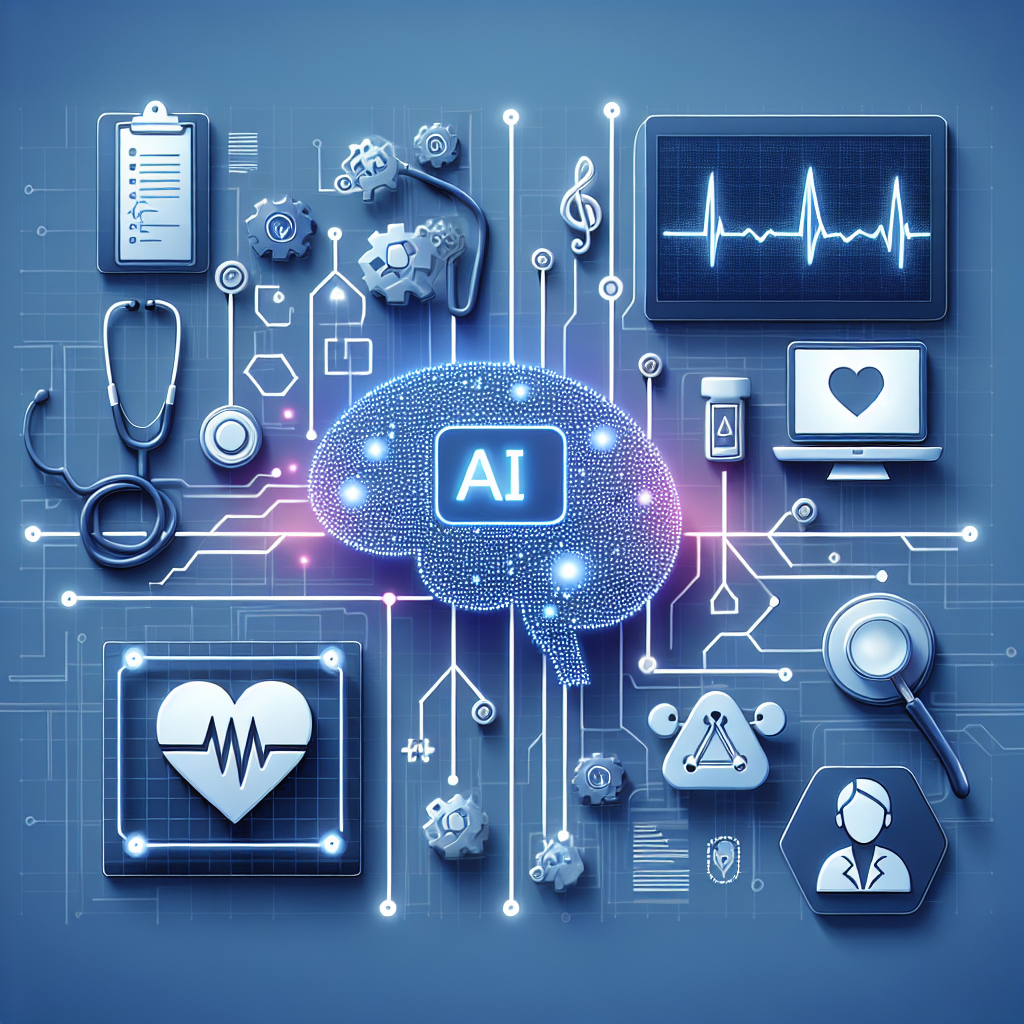Artificial Intelligence (AI) has become increasingly popular in the healthcare industry in recent years, with the potential to revolutionize the way medical professionals diagnose and treat patients. AI platforms are being used to analyze vast amounts of data, identify patterns, and make predictions that can help improve patient outcomes and reduce healthcare costs.
One of the key benefits of AI platforms in healthcare is their ability to process and analyze large volumes of data quickly and accurately. This can help healthcare providers make more informed decisions, leading to better patient care. AI platforms can also help streamline administrative tasks, such as scheduling appointments and managing medical records, allowing healthcare professionals to focus more on patient care.
AI platforms can also be used to assist in diagnosing medical conditions. For example, AI algorithms can analyze medical images, such as X-rays and MRIs, to help doctors detect abnormalities that may be difficult to see with the naked eye. This can help healthcare providers diagnose conditions earlier and more accurately, leading to better patient outcomes.
In addition to diagnosing medical conditions, AI platforms can also be used to predict patient outcomes. By analyzing data from electronic health records, wearable devices, and other sources, AI algorithms can help healthcare providers identify patients who may be at risk of developing certain conditions or experiencing complications. This can help healthcare providers intervene early to prevent adverse outcomes and improve patient care.
AI platforms can also be used to personalize treatment plans for individual patients. By analyzing a patient’s medical history, genetic information, and other data, AI algorithms can help healthcare providers tailor treatment plans to meet the unique needs of each patient. This can lead to more effective treatments and better patient outcomes.
Despite the potential benefits of AI platforms in healthcare, there are also challenges and concerns that need to be addressed. For example, there are concerns about the privacy and security of patient data, as well as the potential for bias in AI algorithms. Healthcare providers also need to ensure that AI platforms are properly validated and regulated to ensure their safety and effectiveness.
Overall, AI platforms have the potential to transform the healthcare industry by improving patient outcomes, reducing costs, and enhancing the efficiency of healthcare delivery. As AI technology continues to advance, it will be important for healthcare providers to embrace and adopt AI platforms to stay competitive and provide the best possible care for their patients.
FAQs:
1. What are some examples of AI platforms in healthcare?
Some examples of AI platforms in healthcare include IBM Watson Health, Google Health, and Microsoft Healthcare. These platforms use AI algorithms to analyze medical data, assist in diagnosing medical conditions, and personalize treatment plans for patients.
2. How can AI platforms improve patient outcomes?
AI platforms can improve patient outcomes by helping healthcare providers make more informed decisions, diagnosing medical conditions earlier and more accurately, predicting patient outcomes, and personalizing treatment plans for individual patients.
3. What are some challenges and concerns with AI platforms in healthcare?
Some challenges and concerns with AI platforms in healthcare include privacy and security of patient data, potential bias in AI algorithms, and the need for proper validation and regulation of AI platforms to ensure their safety and effectiveness.
4. How can healthcare providers benefit from using AI platforms?
Healthcare providers can benefit from using AI platforms by improving patient care, reducing healthcare costs, streamlining administrative tasks, and staying competitive in the healthcare industry. AI platforms can help healthcare providers make more informed decisions, diagnose medical conditions more accurately, predict patient outcomes, and personalize treatment plans for individual patients.

